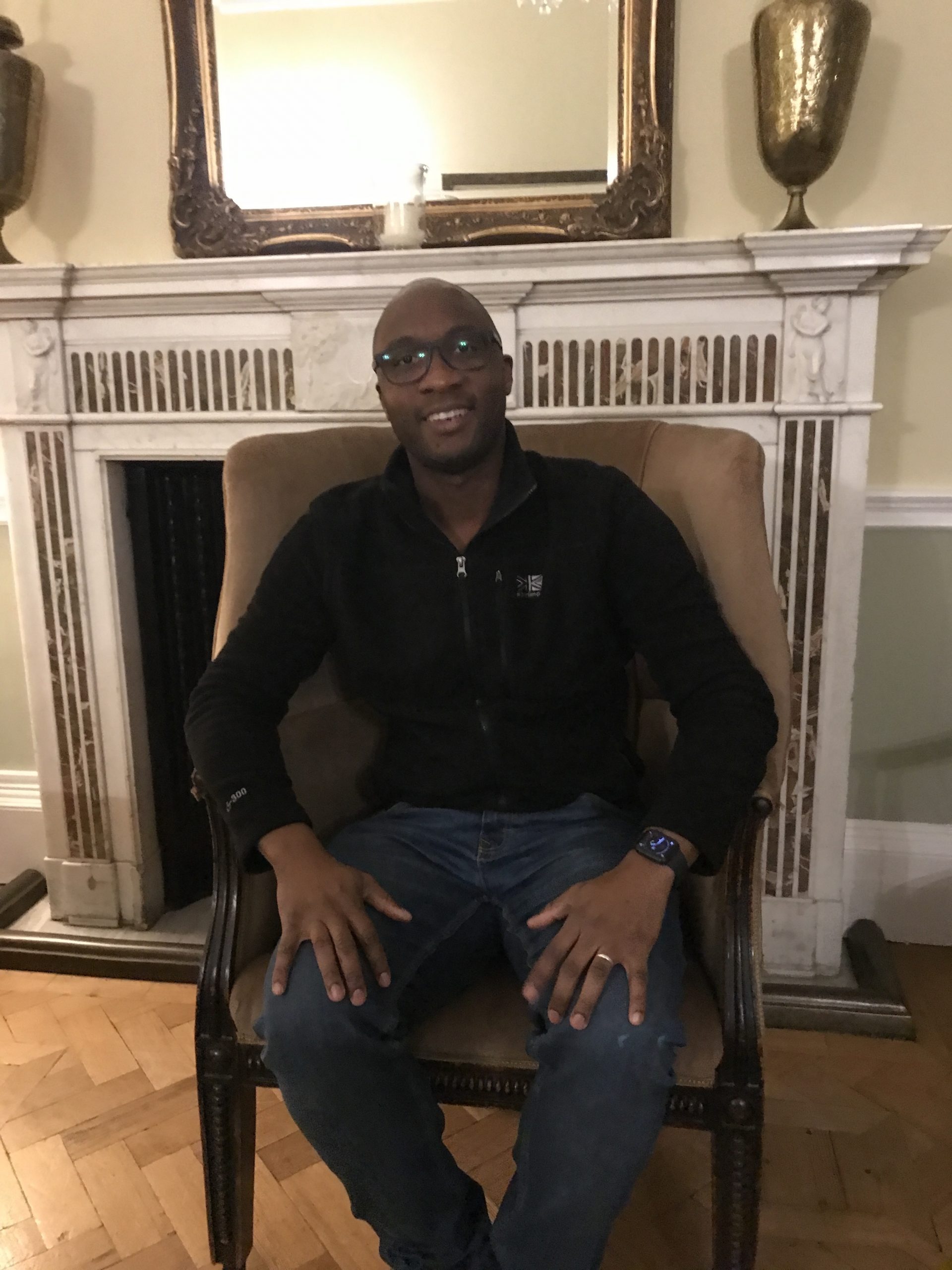
December 13, 2022, by Lexi Earl
Completing a PhD: Dr Chris Chagumaira reflects
Dr Christopher Chagumaira successfully defended his PhD thesis in September 2022. He was part of the first cohort of PhDs with the UoN-Rothamsted Graduate Centre for International Agriculture. His thesis focused on understanding and communicating uncertainty in spatial predictions of soil micronutrients for various stakeholders (including policymakers, farmers, and managers). He is now a Research Assistant on the Micronutrient Action Policy Support (MAPS) project. In this post, Chris reflects on his journey as a PhD student and the things he learnt along the way.
PhD Reflections
A few weeks before her death in December 2007, my mother uttered these words, “the sky is the limit, and you have the potential to do a PhD”. Then, a PhD seemed an impossible dream! These words kept driving me over the course of many years and I joined Professor Paul Mapfumo’s research group at the University of Zimbabwe as a research assistant and a master’s student. This was the period where I developed academically as I had good mentors within the team. I was fortunate to meet with Professor Murray Lark in 2015 when he was in Zimbabwe engaged in other projects. His work on statistics and geostatistics interested me but pursuing a PhD wasn’t part of my agenda then!

Chris Chagumaira collecting samples in the field
A few years later, I decided that I was brave enough to face the challenges of a PhD. I successfully gained a place on the UoN-Rothamsted International Agriculture DTP, based at the University of Nottingham. In my PhD, I worked on understanding how uncertainties in the spatial prediction of soil and crop micronutrients can be communicated effectively to diverse stakeholder groups (e.g., agronomists and nutritionists), and how stakeholder groups interpret the information when making decisions to address micronutrient deficiencies in sub-Saharan Africa. I was supervised by Murray Lark (University of Nottingham), Alice Milne (Rothamsted Research), Martin Broadley (University of Nottingham/Rothamsted Research), Patson Nalivata (Lilongwe University of Agriculture and Natural Resources) and Joseph Chimungu (Lilongwe University of Agriculture and Natural Resources).
What went well
During my first week on the Sutton Bonington campus, Murray gave me my first assignment, to read Chapter 9 of a book on geostatistics by Isaak and Srivastava (1989). I remember that so well because I was intimidated by the equations and thought I was thrown in the deep end of the pool. A few weeks later we went through the complex subject together and he made me understand the things which I thought I would never be able to grasp.
Despite the nervy start I managed to accomplish a lot during my PhD. I planned, prepared, and executed several elicitation activities with stakeholders working in agriculture, public health and nutrition in Malawi, Ethiopia, United Kingdom, Zambia, and Zimbabwe. The activities were challenging scientifically as well as managing ethical approval, logistics and remote liaison with project partners in Africa before the meetings. From these elicitation activities I managed to publish two papers, one in Geoscience Communication and another in the International Journal of Geographical Information Science. I am still working on the other manuscripts, and I hope to publish them in due course. I was also doubling up with project support for the GeoNutrition project. I undertook some geostatistical analysis and map preparation, where I co-authored several project papers and the highlight is the Gashu et al 2021 paper published in Nature.

Chris Chagumaira analysing data at the computer
My PhD has been enjoyable because of the environment provided at the Sutton Bonington campus of the University of Nottingham. There is an amazing chaplaincy service, led by Val Owens and Karen Gray. These ladies do wonderful work, especially for international students like me. They are truly remarkable. They helped me through some challenging periods of my life which otherwise would have resulted in mental health problems. Sutton Bonington village is full of amazing people! The village is wonderful and is a home away from home. I never felt alienated or discriminated in any way.
What didn’t go well
During my PhD journey, I faced a few stumbling blocks. The most notable was the editor rejection of both my manuscripts. I submitted the first manuscript into six different journals and all the editors would reject it citing it was out of scope. My second manuscript had two editor rejections and eventually went through to review. I found this experience to be very frustrating and annoying. At each turn I would reformat the paper to suit the journal format, hoping to be successful.
Being an international student is a challenge, and the Covid19 pandemic made it even more difficult. This greatly impacted on my well being and my progress, as I couldn’t execute several planned elicitation activities in Malawi and Ethiopia.
Lessons learnt
The first and most important lesson I learnt is if you don’t succeed at first, keep on trying until you do! Despite all the editorial rejections I kept on pushing until the papers were published. The second life lesson is to see a problem as an opportunity. Covid19 has also positively impacted on my outputs because of the increased interactions with my supervisors through virtual meetings. I quickly wrote draft manuscripts and got feedback. This accelerated the rate of my work. I also managed to conduct the final elicitation online. Sometimes you just have to work outside the box of your original expectations.
What I wish I’d known at the beginning
There are a lot of useful courses offered by the university through the Researcher Academy. I only got to know about them at a latter stage in my PhD. I found them to be very useful, particularly on how you manage your time as a PhD.
Congratulations to Chris on successfully finishing his PhD. We wish him success for the future.
No comments yet, fill out a comment to be the first

Leave a Reply